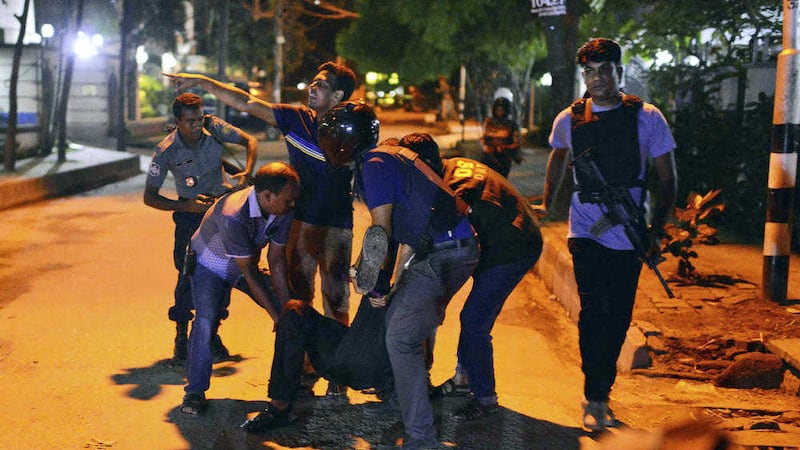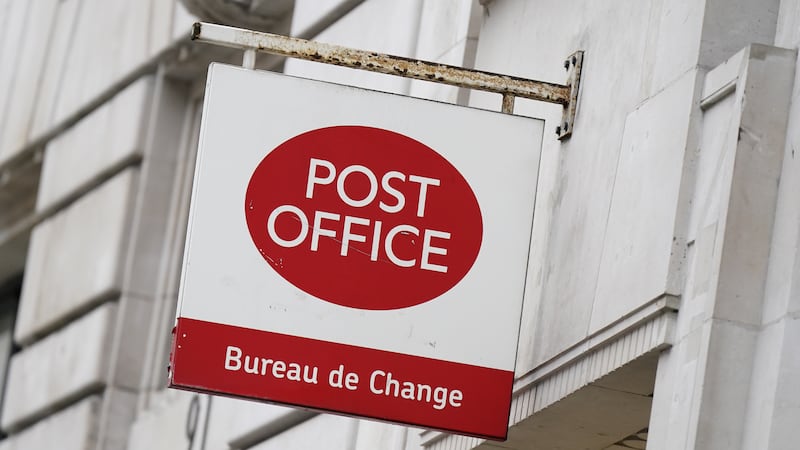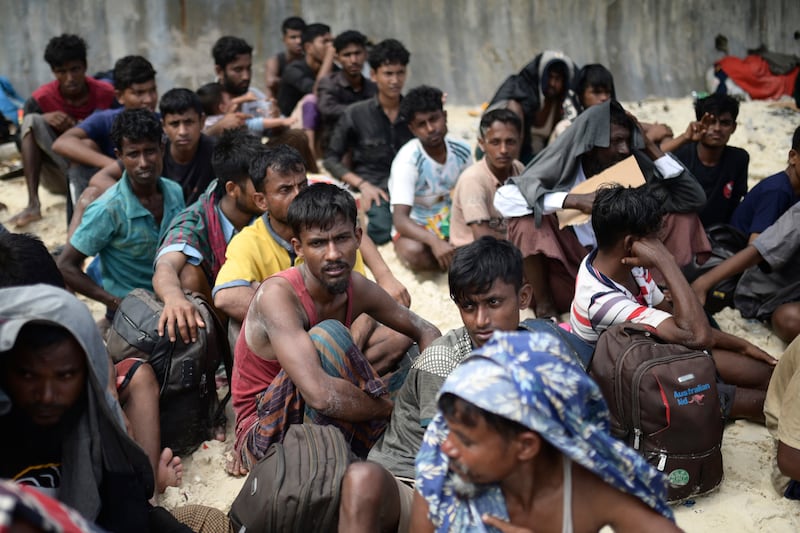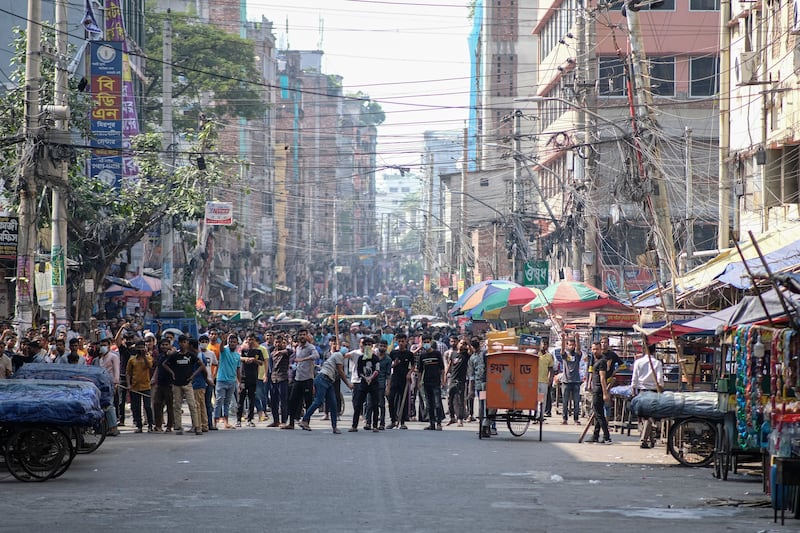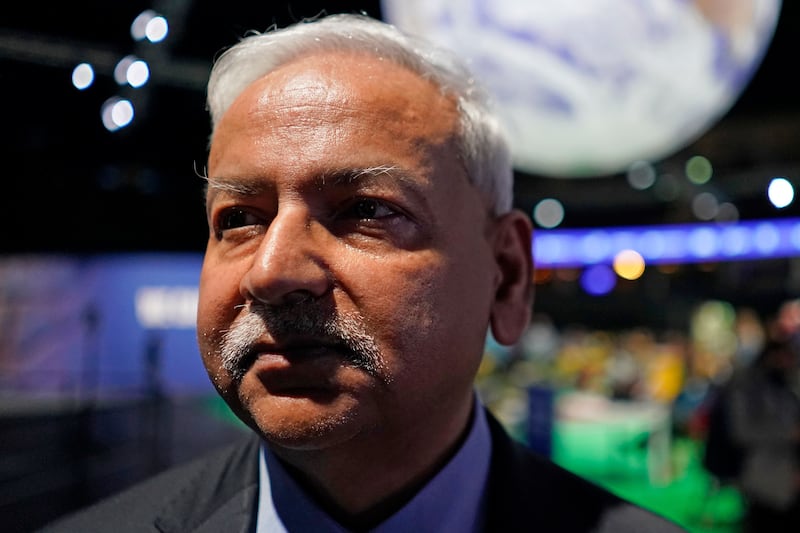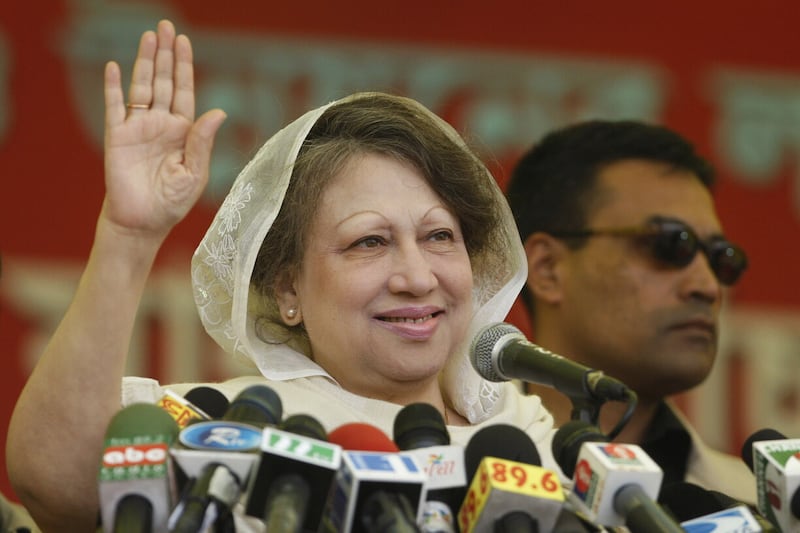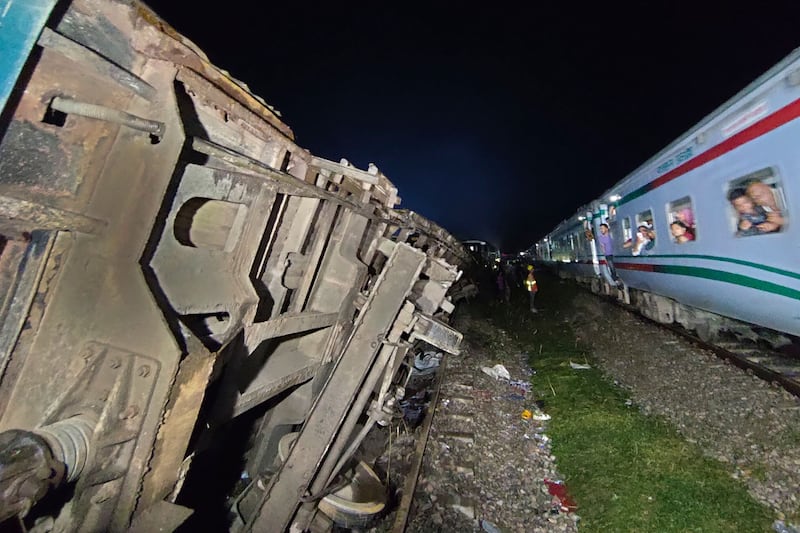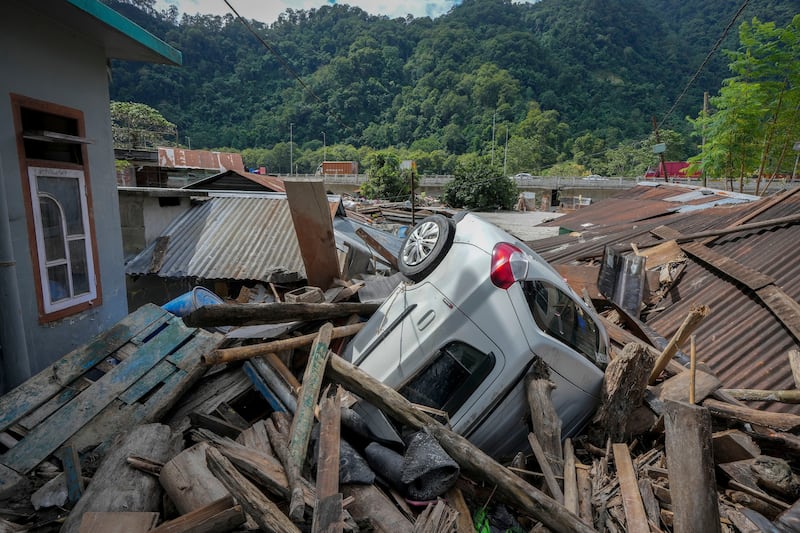SECURITY officials were searching on Sunday for clues and criminal masterminds who might have set in motion the bloody hostage crisis that left 28 dead, including six attackers and 20 of the hostages, in the diplomatic zone of the Bangladeshi capital Dhaka.
Police were blocking all access to streets near the Holey Artisan Bakery in Dhaka's Gulshan area, where heavily armed attackers holed up overnight on Friday, torturing and killing some of their captives, including nine Italians, seven Japanese, three Bangladeshis and one Indian teenager.
Many details of the attack remain unclear a day after commandos stormed the restaurant and rescued 13 people. But police released photographs of the bodies of five attackers, along with their first names: Akash, Badhon, Bikash, Don and Ripon.
Their families had not heard anything from them in months, according to police.
"They are all Bangladeshis. They are from rich families, they have a good educational background," Bangladesh's home minister Asaduzzaman Khan said.
He identified them as being part of the banned domestic group Jumatul Mujahedeen Bangladesh, or JMB.
He once again refuted the possibility that the Islamic State could have been behind the attack, despite the group claiming responsibility on Saturday and releasing horrifying photographs of what unfolded overnight on Friday.
The government insists the extremist Sunni Muslim group has no presence in the country, and in the past has suggested that any claims of responsibility for violence waged there are simply opportunistic attempts at grabbing global attention.
Prime minister Sheikh Hasina instead blames her political opponents for trying to create chaos in the country by backing domestic militants in waging a bloody crime spree that, until this weekend, has been mostly carried out by young machete-wielding men targeting individuals they say are traitors to extremist Islam.
Victims have included atheist bloggers, gay rights activists, foreign aid workers and religious minorities.
The attack on Friday night, however, stunned the nation. This time, the assailants were well prepared and heavily armed with guns, bombs and sharp objects that police later said were used to torture some of the 35 hostages who were trapped inside.
"Anyone who believes in religion cannot do such an act," Ms Hasina said on Saturday.
"They do not have any religion – their only religion is terrorism."
The attack was the worst by radical Islamists in the moderate and mostly-Muslim nation of 160 million.
The hostages were asked to recite verses from the Koran, to prove themselves Muslim, according to a witness. Those who passed were allowed to eat. Those who failed were tortured and killed.
Yesterday morning, the first of two days of national mourning for the victims, investigators from both Bangladesh and Japan visited the restaurant to collect evidence.
Western embassies issued travel warnings to their citizens, advising those who are now in the country to be vigilant and stay away from places frequented by foreigners in the diplomatic zone.
The US Embassy also urged its citizens and personnel to avoid travelling on foot, motorcycle, bicycle, rickshaws or other uncovered vehicles where attackers might be able to reach them.
